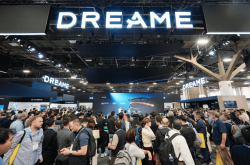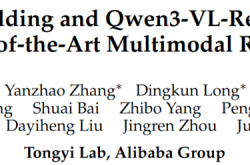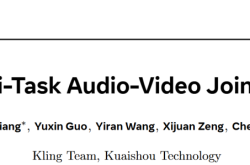Xiaomi Unveils 'Genius Youth' Initiative: Industry-Leading Salaries for Top Talent
![]() 07/04 2025
07/04 2025
![]() 836
836
On July 1, Xiaomi Group officially launched its 2026 Global Campus Recruitment drive, a program akin to its own 'Genius Youth' initiative, aimed at attracting top-tier talent.
This recruitment drive targets pioneering fields like artificial intelligence, large models, and autonomous driving, with a broad scope encompassing undergraduates, masters, PhDs, and postdoctoral researchers graduating between 2023 and 2026.
Work locations include key cities such as Beijing, Shenzhen, Wuhan, and Nanjing.
Selected individuals will have the opportunity to participate in trillion-scale projects, focusing on key areas like multimodal technology, chip research and development, and automotive three-electric systems.
To entice these elite talents, Xiaomi offers salaries that are among the highest in the industry, complemented by achievement transformation rewards, enabling participants to share in the dividends of ecological growth.
Additionally, the Youth Apartment Program is now open. In Beijing's Changping District, 2,658 apartments are available with an average monthly rent of 1,999 yuan. In Nanjing's Jianye District, 566 apartments will open for applications in July, giving fresh graduates priority.
Lu Weibing, Xiaomi Group's partner and president, stated that Xiaomi continues to bolster its recruitment of fresh graduates, having hired over 5,000 nationwide in 2025.
Xiaomi's talent strategy has emerged as a cornerstone of its operations. At the beginning of 2025, Lei Jun raised the highest technology award to 10 million yuan and recruited AI expert Luo Fuli with an annual salary of 10 million yuan to lead the large model team.
Tech giants offering high salaries to compete for talent is a well-established practice.
Huawei launched its 'Genius Youth' program in 2019 amidst challenges from the United States, including chip supply disruptions, shrinking market share for high-end phones, and difficulties in frontier innovation. The annual salary for 'Genius Youth' is tiered, ranging from 896,000 to 1,008,000 yuan, 1,405,000 to 1,565,000 yuan, and 1,820,000 to 2,010,000 yuan.
Alibaba introduced the 'Ali Star' program in 2011, shortly after the establishment of Alibaba Cloud. Early selected campus recruits received P6 and P7 titles, were personally trained by vice presidents, and had no cap on their annual salary. However, Alibaba is known for its rigorous selection process, with some claiming that the interview rounds can number up to 13, spanning several months.
Tencent's 'Qingyun Program' is equally influential. Focusing on ten key technology areas such as AI large models, infrastructure/hardware, storage/databases, big data, multimedia, game engines, security, robotics, quantum, and fintech, the program provides top technical talents with highly competitive salaries and incentive policies. After an upgrade in 2024, the large model special recruitment increased by over 50%.
Meituan operates the 'Beidou Program', covering recruitment in areas like large models and AIGC, autonomous driving technology research, operations research optimization and intelligent scheduling, drone technology research, and video codec. The program accepts online applications year-round, without a written test, and allows multiple volunteer submissions.
Baidu's 'AIDU' program aims to supply talent for core technologies such as autonomous driving, with selection focusing on areas like artificial intelligence, autonomous driving, and big data.
Kuaishou's 'STAR' program is also dedicated to discovering and recruiting top talent.
In the race for AI talent, tech giants are sparing no effort.
ByteDance has launched the Top Seed and 'Jin Dou Yun' programs, covering research in all areas of large models with no salary cap. JD.com's 'TGT Program' encompasses 8 major technology directions with 18,000 core positions. Alibaba Cloud's 2026 internship recruitment features over 80% of positions related to AI. In March, Baidu opened over 3,000 summer internship positions, with 87% related to AI.








